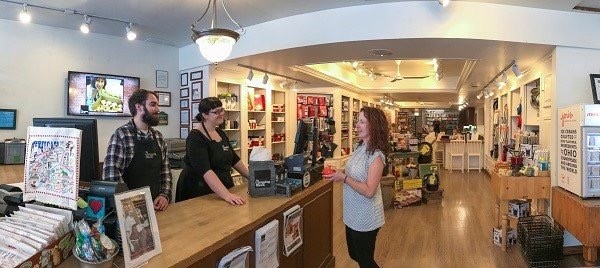One of the biggest challenges facing retailers in a growing economy is a shortage of workers. Independent kitchenware retailers are no different. In one of the tightest labor markets in years, stores around the country are struggling to hire and keep staff and many find the experience frustrating, especially as the summer was nearing.
“The employment situation around here is really dire,” says Pamela Elias, owner of Rooster Brother in Ellsworth, Maine. “No one can find the help that they need, and everyone is pretty scared about how they’ll get through the summer. We’re all going to have to work double duty and a lot of overtime. Not a pleasant summer to look forward to, I’m afraid.”
Elias has advertised for help to no avail.
“We have been advertising a position since March and have received only TWO applications, and neither one a good fit for the job. So, we’re struggling. Office staff and buyers are having to work the floor, especially to cover lunches. No one is happy,” she said.
The tricky part, retailers say, is finding qualified candidates. Selling cookware and kitchenware takes some skill, says Lisa Duryea, recruiting and hiring coordinator for Chicago’s The Chopping Block.

The retailer recently held open interviews and posted the jobs on Facebook: “Want to land the best job you’ll ever have?” the post read. “If you love people just as much as food, Chicago’s premier recreational cooking school wants you on our retail floor.”
“We don’t have a shortage of applicants for any given position we are posting,” Duryea says. “We do have a shortage of ‘qualified’ applicants; applicants appear to be applying for any opening, without regard to the skills and experience the role might require,”
Duryea says finding good people takes a broad approach. She starts by posting the jobs to a range of different job boards and community partners like job fairs. She requires cover letters for most positions.
“We also care that candidates understand what we do as a business and can get behind our mission,” she says.
The cover letter is key. Duryea wants to be sold on the applicant. “This allows us to narrow down candidates with the right combination of experiences and drive, passion and interest in working at The Chopping Block. From there we use a multi-stage interview process, which includes an initial phone interview, a face-to-face interview and for select roles, actual demonstrations of work product.”
Still, even when a candidate gets past The Chopping Block’s rigorous application process, the tight labor market comes into play.
“We can be mid-press with candidates and they withdrew their application because they have accepted another position,” Duryea says. “We also find that candidates are quite open about interviewing for other positions and sometimes we need to work around other interviews they might already have scheduled.”
What’s a hiring coordinator to do?
“The key here is to be as efficient and nimble as possible when working with candidates, which for more senior level positions, with a rigorous selection process can be challenging,” she explains.

Duryea adds that The Chopping Block makes a point to respond to every job applicant. “Candidates appreciate this and we often get notes of thanks for this small, yet important courtesy.”
Mary Liz Curtin, owner of Leon & Lulu in Clawson, Mich., says she is always searching for the right people.
“We find many of them in our customer base,” Curtin says. “Facebook is sometimes a good resource for hiring. The biggest trick is to make the job appealing.”
To that end Curtin offers perks. “We offer flexible scheduling, a fun and happy workplace, good pay, health insurance for full-timers, free parking, unlimited popcorn and coffee as well as a generous discount,” she says.
Not surprisingly, “Leon & Lulu is very lucky—our employees tend to stay with us for a long time.”
And that saves Curtin money. “Our high school kids leave for college and return for holiday shifts, which is great since they are already trained,” she says.
Still, with the recent addition of a café Curtin has had to tangle with the more transient food service world. “The search is even harder, and the food service folks are harder to keep than retail staff,” she says.
In Ogden, Utah, Gina Crane, manager of Kitchen Kneads, reaches out to her community for new hires. “We find that word of mouth works best,” Crane says. “We do advertise on our social media sites that we are hiring as well. This last time it seemed that social media is where we received the most responses.”
The success with social media has led Crane to give up on more traditional employment sources. “We had posted the positions on job websites and had only a few responses,” she says.
Or, as The Chopping Block Facebook ad pleads, “Bring a cover letter, resume and smile to our open job interview.”



